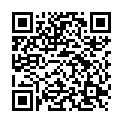|
|
|
| Module code: WIBb21-890 |
|
|
- |
|
12 |
| Semester: 8 |
| Mandatory course: yes |
Language of instruction:
German |
Assessment:
Thesis
[updated 11.06.2025]
|
|
The total student study time for this course is 360 hours.
|
Recommended prerequisites (modules):
WIBb21-150
WIBb21-370 Academic Work
[updated 12.11.2025]
|
Recommended as prerequisite for:
|
Module coordinator:
Studienleitung |
Lecturer:
Professoren der Fakultät
[updated 12.11.2025]
|
Learning outcomes:
The Bachelor’s Thesis´s thesis is a written final thesis. By completing their thesis, students demonstrate that they are able to:
• work independently, using scientific methods, to solve an industrial engineering problem within a specified time frame (usually three months).
• collect information on the current state of research related to their topic as independently as possible, collect and evaluate data on their research topic, and draw conclusions from the results.
• apply the knowledge and skills they have acquired to find a solution and develop those skills independently
• to arrive at a suitable solution.
• explain their approach and discuss how they arrived at a solution strategy.
[updated 11.06.2025]
|
Module content:
Content will may vary depending on the respective topic. However, students must do justice to the contents of an industrial engineering course of study.
Students’ results will be presented and evaluated in a colloquium with regard to their problems and the solutions found (see corresponding module description).
As a rule, students are given a practical and application-oriented topic. The thesis topics are usually coordinated with the supervising lecturer(s) and stem from current research and development projects from the field of indutrial engineering at the htw saar. The subject of the thesis can also be selected and defined in cooperation with one or more university lecturers, companies or industrial enterprises.
[updated 11.06.2025]
|
Recommended or required reading:
The literature will vary depending on the topic.
[updated 11.06.2025]
|

